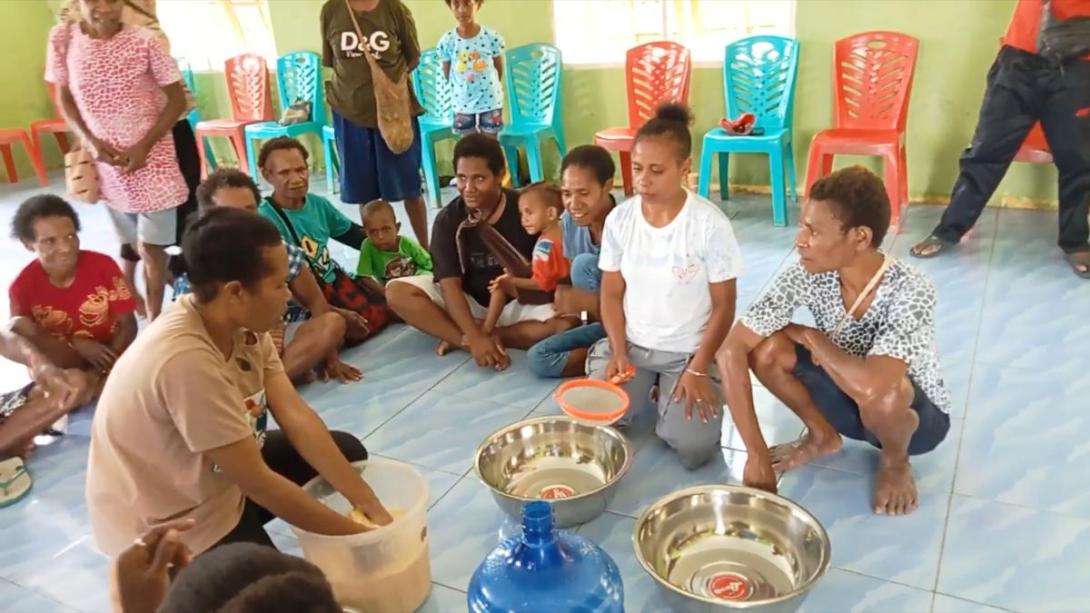
“Our success came not just from planning, but from listening and returning—people trusted us because we came back.”
The Purpose of this project is to understand the factors that cause women farmers in Sentosa Village sell their crops at low price, and to use Co-Design to create and test the prototype to address this issue.
Main Objectives:
- To do advocacy and involve stakeholders to help minimize the problem of women farmers in selling their crops
- Collect information and design strategic steps together with women farmers, through a co-design process
- To Improve my organization's capacity on handling the issue of women's basic rights
- To learn to lead the project and increase self-capacity.
The Co-Design Action Project, led by Agusta Melani Sorabut of ELSHAM Papua, focused on understanding the barriers that Indigenous women farmers in Sentosa Village face when trying to sell their crops at fair prices. Through a participatory co-design approach, the project aimed to gather input directly from the women, design context-specific strategies, and prototype practical solutions. Originally planned as a two-phase project, it was expanded to three due to unexpectedly high participation and evolving community needs. The project ran from May 2022 to August 2024, with delays caused by logistical, personal, and political challenges, including the social-political tensions in Papua.
The implementation involved three main phases: co-design workshops, sharing findings and prototyping, and testing the prototype. Activities included community discussions, sago flour-making workshops, and advocacy meetings with stakeholders. Women farmers formed a group called “Uhli Wewal” (Wewal Women), which became a platform for learning, mutual support, and future savings-and-loans initiatives. Although challenges persisted in getting consistent support from the village government, the project gained momentum when government representatives attended the final activities and committed to supporting the women’s initiatives.

The project achieved several outcomes: a community prototype for advocacy, basic financial literacy training, the creation of the Uhli Wewal group, and the beginning of collaboration with the Jayapura Regency’s Women Empowerment Department. It also helped Agusta build her leadership and coordination skills, leading to her promotion as Coordinator of the Women Division in ELSHAM Papua. The project emphasized a shift in the theory of change—from purely understanding women’s challenges to strategically advocating for transportation access and building economic alternatives like sago processing.

